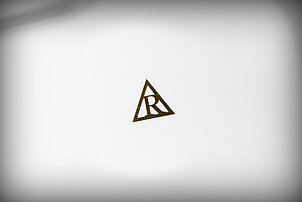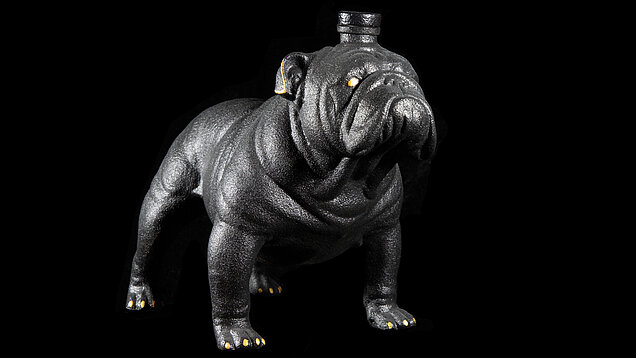The benefits of ceramic bottles for the storage of liquids such as spirits, liquors, water, or even perfume, are multiple:
Durable
Ceramic bottles at Rockwood Ceramics have the characteristics of porcelain due to their greater density and baking temperature that exceeds 1,600 degrees. Porcelain is a very hard, translucent white ceramic, the earliest forms of which originated in China around 1,600BC.
Heat resistant
Ceramic is well known for its ability to withstand very high temperatures and temperature fluctuations. It is ideal for the protection of a liquid’s properties, in contrast to glass bottles which are more affected by temperature changes. This is due to the low density of ceramic.
Safe
Ceramic bottles are unaffected by chemicals and acidity and they are corrosion-resistant. Ceramic bottles at Rockwood Ceramics are manufactured for contact with consumable liquids. They are not purely decorative items and therefore do not risk containing any harmful substances such as lead or toxic paints. The characteristics of the stored liquid, such as taste, odor, and color are fully maintained within ceramic bottles.
Versatile & decorative
Ceramic bottles at Rockwood Ceramics can be manufactured in any shape, size, or color and are fully bespoke. Hand-painted details, hand-crafted decorative features, and unique closures and corks can be designed upon request. When it comes to customized shapes, embossed designs, engravings, and textures, ceramic material has unrivaled design possibilities, compared to its glass counterpart.
The simple answer is yes. But it also depends on what you are looking for in a bottle and what characteristics you are comparing.
Ideal choice for longevity and insulation
Denser ceramics such as porcelain are very hard, opaque, wear-resistant, and resistant to temperature fluctuations. Their insulating properties are probably the biggest advantage. This is because having a substantially lower density than glass means that ceramic bottles offer optimal protection from extreme heat and freezing temperatures. Glass does not offer the same protection and can even crack or break if the temperature on one of its sides changes much faster than on another.
Versatility, craftsmanship, and creativity
When it comes to shape, size, color, decoration, engravings, textures, and patterns, the sky is the limit. Ceramic material has unrivaled design possibilities compared to glass and therefore lends itself to very unique and bespoke creations that can serve as a brand’s special edition or premium bottle.
Upcycle and reuse ceramic bottles
In terms of environmental friendliness, ceramic cannot be fully recycled, but it can be upcycled (to create mosaics for example), reused (as a vase or water carafe), or broken down into a ceramic powder (for uses such as drainage material or a base for driveways).
At Rockwood Ceramics, prohibitive pricing for top-quality ceramic bottles is a thing of the past, despite ceramic being costlier than glass. This is due to producing ceramic bottles in China (lower production costs) while maintaining European standards and providing a Shanghai-based team of highly-skilled French designers, engineers, and technicians. The same applies throughout the concept creation (design and mold) and the actual on-site production of the final product. The cost-effective, premium-quality result, makes Rockwood Ceramics a rival to competitors based in Europe and the USA.
Due to the premium status of ceramic bottles, our clients can sell the final product with a greater margin. This allows them to cover the pricier shipping costs from China (freight costs and US tariffs), while still making a substantial profit. Minimum order quantities (MOQs) of 5,000 bottles mean that clients can launch limited editions of bespoke bottles, without risk of loss.
Yes. The denser ceramics such as porcelain are very hard, opaque, wear-resistant, and resistant to temperature changes, chemicals, acidity, and corrosion. Their insulating properties are the biggest strong point. Due to their density being substantially lower than that of glass, ceramic bottles offer protection from fluctuations in temperature (from freezing to extreme heat). This ensures that the properties of the liquid stored inside remain unaltered. Ceramics are therefore the ideal choice for uses that require longevity and excellent insulation.
At Rockwood Ceramics, bottles are manufactured for contact with consumable liquids. They are not purely decorative items and as such do not risk containing any harmful substances such as lead or toxic paints.
The extent to which a ceramic bottle can be made-to-measure and respond to a particular branding strategy is what makes luxury ceramic bottles so sought after. Ceramic is a very versatile and durable material that can be tailored to a client’s and designer’s imagination. Whether a client is looking for a discrete and minimalist design or an eccentric and striking bottle, the possibilities are endless. Rockwood Ceramics is at the epicenter of the trending niche market for premium ceramic bottles. Our state-of-the-art ceramics factory produces bottles for clients such as the Stoli Group, whose famous super-premium KAH Tequila is bottled in unique handmade and hand-painted ceramic works of art. Drumshanbo Gunpowder Irish Gin is also bottled in a pristine limited-edition ceramic bottle produced by Rockwood Ceramics.
Decorative textures and patterns such as embossing, debossing, and engraving are incorporated upon request. From bottles in the shapes of eagles with impressive wingspans to trucks, jaguars, guns, or a plethora of geometric and non-geometric shapes, the Rookwood Ceramics in-house design team can make it happen.
The term traditional ceramics covers the pottery categories of earthenware, stoneware, porcelain, and bone china. Pottery and ceramic are one and the same. They are general terms that describe items that have been created with clay, solidified by firing, and then glazed or decorated.
Of all the traditional ceramic types, porcelain is the strongest, the most durable, and the least porous. Ceramic bottles at Rockwood Ceramics have the characteristics of porcelain. This is due to their greater density, non-porosity, being made from more refined clay, and undergoing baking in firing temperatures that can exceed 1,600°C. Porcelain is a very hard, translucent white ceramic, the earliest forms of which originated in China around 1,600 BC.
The Chinese were the first to introduce high-temperature kilns capable of reaching up to 1,350°C at the time, and, around 600 CE, developed porcelain (which has less than 1% porosity) from kaolin clay.
Ceramic bottles at Rockwood Ceramics have the characteristics of porcelain. This is due to their greater density, non-porosity, being made from more refined clay, and undergoing baking in firing temperatures that can exceed 1,600°C. The term traditional ceramics covers the pottery categories of earthenware, stoneware, porcelain, and bone china. Pottery and ceramic are one and the same. They are general terms that describe items that have been created with clay, solidified by firing, and then glazed or decorated. Of all the traditional ceramic types, porcelain is the strongest, the most durable, and the least porous.
Ceramic is lighter than glass although this tends to be due to its increased porosity. For ceramic and glass bottles to be equally durable, ceramic products need to be made thicker. The added thickness leads to them weighing similarly to their glass counterparts. Of the 4 types of traditional ceramics, namely the pottery categories of earthenware, stoneware, bone china, and porcelain, earthenware and stoneware are the heaviest. Ceramic bottles at Rockwood Ceramics have the characteristics of porcelain.
At Rockwood Ceramics, ceramic bottles are often created as bespoke works of art, collector’s items, or one-off special editions that complement a luxury brand’s glass bottle series. Due to the premium status of ceramic bottles, companies can sell the final product at a greater margin. This allows them to cover the pricier shipping costs from China (freight costs and US tariffs), while still making a substantial profit.
Ceramic bottles do not leak, provided that their closures, corks, or caps are designed and fitted correctly. At Rockwood Ceramics, the drilling technique used for the inner mouth of the ceramic bottle allows for perfectly fitted and sealed (no-drip) corks. The same tolerances apply as in the glass-bottle corks, namely +/-0.5mm.
As for spirits, liquors, water, or even perfumes leaking from the body of the ceramic bottle, the non-porous and dense properties of ceramic bottles fired in a kiln at extreme temperatures, make leaks impossible.
The characteristics of the stored liquid, such as taste, odor, color, etc., are fully maintained within ceramic bottles thanks to the opaque properties of baked natural clay, and the inertness of the material. Any toxic chemicals or gases are also fully prevented from seeping into the bottle from the bottle’s exterior.
Please contact Rockwood Ceramics for information regarding bottling.

R stands for Rockwood. It is encased in a triangle that embodies balance.
Three sides to symbolize:
Rockwood’s strong foundations for the future
A connection to its entrepreneurial past
Dedication to its present mission
The R is representative of a brand that is synonymous with artistry, craftsmanship, and excellence. A company in constant evolution, yet consistent in its delivery of superior glass and ceramic bottle quality.
So, is your bottle a Rockwood original? Feel under its base for this beautifully embossed design.
Yes. Rockwood designs and manufactures premium quality perfume bottles that break the mold in design tradition. Our tailor-made perfume bottles embody creativity and craftsmanship that will set your brand apart. They can be created in glass or ceramic.
Check out our perfume bottle portfolio for more information.
Rockwood is the largest French-owned glass and ceramic bottle factory in China. It produces over 6 million exclusive bottles for some of the most prominent premium brands in the global spirits and beverages arena, and a further 500+ million classic bottles, annually.
